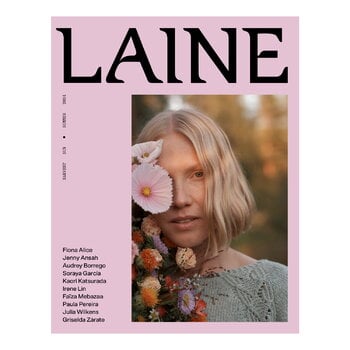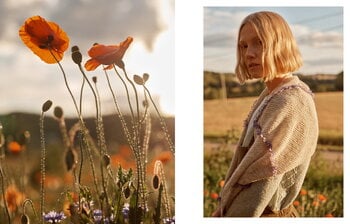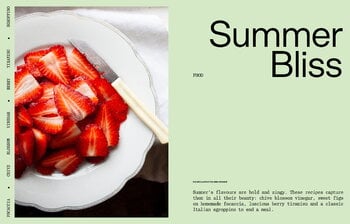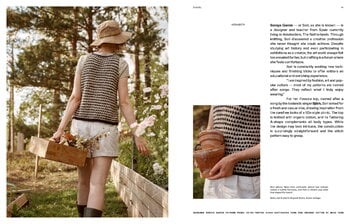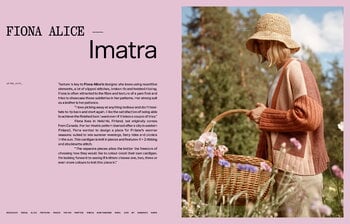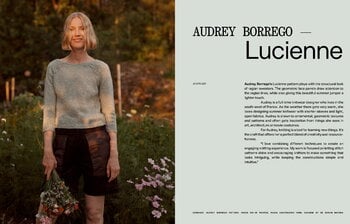Laine Magazine contains knitting tips, interesting articles and stories from the world of wool, inspiring interviews, and seasonal recipes. The magazine is published three times per year, in both English and Finnish.
Issue 21 of the magazine (Summer 2024) features a diverse array of content, including an exploration of knitted artworks by American artist Kendall Ross, an interview with April Tang, founder of the Taiwan-Tibetan brand Shangdrok, and a look into the Irish educational project Wool in School. The Five Ways series delves into the power of colours, while the Where I Knit series introduces us to Emilia Bergoglio, who knits in a temple park in Tokyo. Additionally, the magazine offers a total of 11 knitting patterns: 4 sweaters, 2 cardigans, 2 tops, 2 shawls, and 1 pair of socks.
Our stunning summer issue Laine 21, Harvest Sun, is filled with beautiful and practical summer knits featuring fun stitch patterns, engaging techniques and lovely details. The serene photos depict a balmy summer day in the countryside amidst blooming gardens and golden, sun-drenched fields.
Designers featured in this issue: Fiona Alice, Jenny Ansah, Audrey Borrego, Soraya García, Kaori Katsurada, Irene Lin, Faïza Mebazaa, Paula Pereira, Julia Wilkens and Griselda Zárate.
